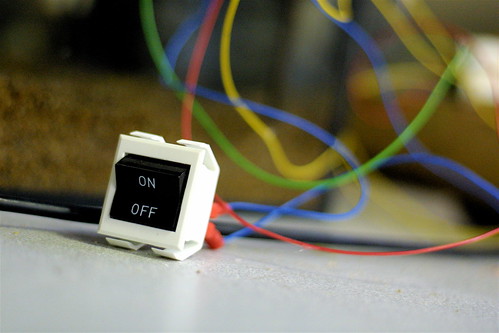HACK(ING) SCHOOL(ING)
Another One Week, One "Book" Project
Jon Becker and I are pleased to announce a new project: Hacking Schooling.
The project and the process borrow liberally from 2010’s Hacking the Academy, which called for scholars to consider the ways in which digital culture and digital technologies were reshaping (and/or threatening to reshape) institutions of higher education.
Jon and I want to look beyond “the academy” and turn our eye to “the school.” So we’re asking for submissions to a new “book” with the working title Hack(ing) School(ing), which like the Hacking the Academy process, will only take submissions for one week.
I am – no surprise – partial to the verb “to hack.” To break in and break down. To cut to the core. To chop roughly. To subvert. To be mediocre (okay, let’s ignore that definition.) To pull systems apart. To “MacGyver” things back together. To re-code. To rebuild.
I think it’s worth (re)considering too what we mean by hacking “the academy,” hacking “education,” hacking “school” and hacking “schooling.” Much like the verb “to hack,” these nouns (and direct objects in that particular construction) have varied meanings that are worth cracking (hacking) open, decoding, reconsidering, and rebuilding.
“Hacking school” means something more, I would argue, than “adopting education technology” – even though the hacks and hackers and hacking likely comes at the hands of new technologies, hardware, software, networks, Webs, nets, digitalia, algorithms, and applications.
Read more about the project on Jon's blog Educational Insanity.
Submission Process
Using and building upon the successes of Hacking the Academy, Hack(ing) School(ing) will be a curated, multimedia “book.” We invite folks to submit posts, articles, artifacts that you believe would be relevant to a collection on Hack(ing) School(ing). What this ultimately looks like is still to-be-determined; maybe it’s more than one “thing.” We will ultimately let the content of the submissions dictate the structure of the collection(s). Consider, though, just the following short list of possible topic areas:
Hacking learning spaces (where learning happens) Hacking learning time (the school day, year) Hacking the curriculum Hacking credentialing/assessment Hacking professional development
So, if you have something you’d like to submit to Hack(ing) School(ing), please click on the link below and fill out the form.
We will close submissions one week from today: July 17, 2012.
Photo credits: Jean-Baptiste Labrune
